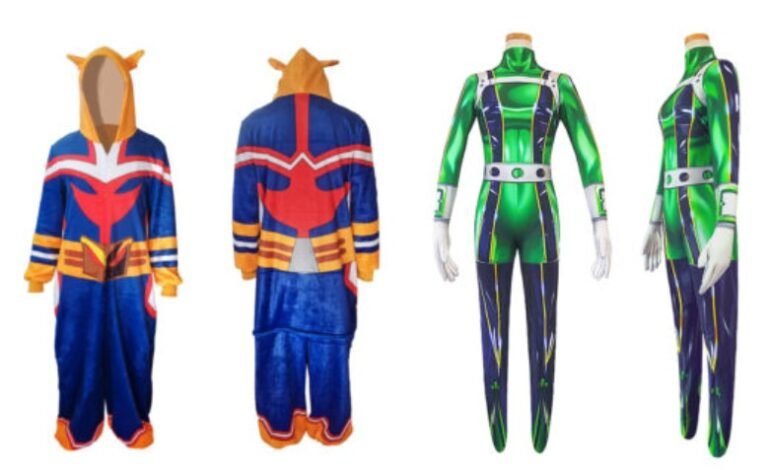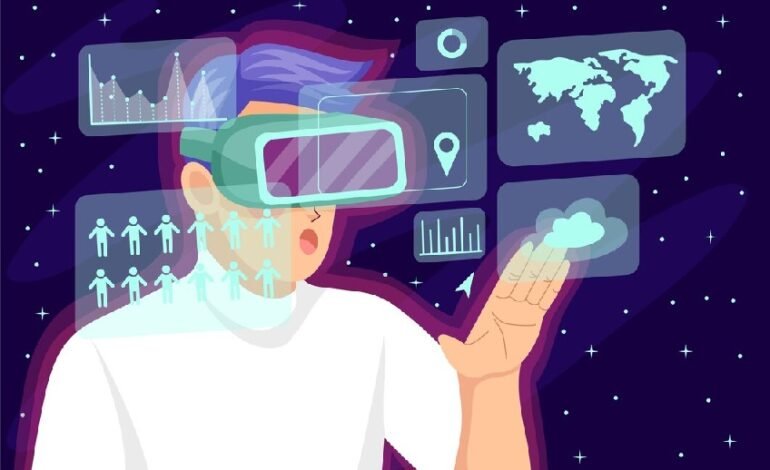My Hero Academia’s Influence on Modern Pop Culture

My Hero Academia, the popular anime and manga series created by Kōhei Horikoshi, has become a global phenomenon, captivating fans and leaving an indelible mark on modern pop culture. Set in a world where nearly everyone has superpowers, known as “Quirks,” My Hero Academia follows young Izuku Midoriya as he trains to become a top hero. Beyond its action-packed scenes and compelling characters, the series has expanded its reach into fashion, social media, and the vibrant world of cosplay, with My Hero Academia costumes becoming a staple at conventions. This article explores how My Hero Academia has influenced various aspects of pop culture.
1. Reinventing the Superhero Genre
The world of My Hero Academia offers a unique twist on traditional superhero stories by mixing Western comic-style heroism with the personal growth journeys often found in anime. While superheroes are generally portrayed as untouchable icons, the characters in My Hero Academia are incredibly relatable. Heroes are depicted as humans with flaws, dreams, and fears, making them more approachable to viewers. This blend of emotional storytelling with classic hero tropes has influenced how modern audiences connect with heroes, resonating with fans across different cultures.
2. Influence on Cosplay and Anime Fashion
The impact of My Hero Academia on anime costumes and cosplay is one of its most visible contributions to pop culture. Characters like Izuku Midoriya, Katsuki Bakugo, and Shoto Todoroki sport distinct costumes that are easily recognizable and iconic. As a result, My Hero Academia costumes have become highly sought-after for cosplayers, leading to a surge in demand at anime conventions. The recognizable, detailed outfits give fans a chance to embody their favorite characters, creating a bridge between the anime and real-world fans. This trend has grown with each season, inspiring a diverse cosplay community where people showcase their interpretations of heroes and villains alike.
3. Impact on Fashion Trends
Beyond cosplay, My Hero Academia has inspired everyday fashion through casual “hero-inspired” clothing and merchandise. Fans worldwide sport T-shirts, hoodies, and accessories branded with symbols like All Might’s logo or U.A. High School’s emblem. These pieces not only show fandom pride but have introduced anime-inspired fashion to mainstream retail, reflecting a broader acceptance of anime culture in daily wear. This trend highlights how My Hero Academia has not only influenced anime fans but has also reached people who may not watch the show but appreciate its visual style and symbolic heroism.
4. Themes That Resonate with Modern Audiences
The series tackles themes that resonate deeply with today’s audiences, including perseverance, self-discovery, friendship, and moral responsibility. Characters grapple with personal insecurities and struggle to balance their abilities with their values—elements that feel especially relevant in a world where people face intense personal and societal pressures. For example, Midoriya’s journey from a Quirkless boy to a powerful hero speaks to the idea that success comes from dedication and heart rather than innate talent. This message resonates with viewers facing their own challenges, which is part of why My Hero Academia has garnered such a dedicated fanbase.
5. Social Media and Meme Culture
My Hero Academia has also made waves on social media platforms, where fans create and share content ranging from fan art to memes. Certain scenes and characters lend themselves naturally to meme culture, allowing fans to spread relatable and humorous content online. Social media influencers often post videos of themselves dressed in My Hero Academia cosplay or recreate iconic scenes, adding to the series’ visibility. These platforms have allowed the fandom to flourish, drawing new fans into the series and creating a vibrant online community.
6. Inspiring Future Creators
The show’s immense popularity has influenced aspiring artists, writers, and animators. From fan fiction to fan art, My Hero Academia has inspired countless fans to create original content, some even moving into careers in the anime and comic industries. Young creators are drawn to the series’ diverse cast, each character a mix of relatable insecurities and heroic qualities. The series’ focus on personal growth and the idea that everyone can be a hero has led to an influx of creative works that expand on the characters’ journeys or explore entirely new ones within its universe.
7. Expanding the Reach of Anime Worldwide
While anime has long had a dedicated fanbase, My Hero Academia has introduced new viewers to the genre. Its action-packed scenes, relatable heroes, and universal themes have made it accessible to a broad audience, even those who may not traditionally watch anime. Streaming services and dubbed versions have contributed to its reach, leading to a boom in the anime industry and paving the way for other anime series to gain international popularity.
Conclusion
From sparking a wave of My Hero Academia costumes in cosplay communities to impacting global fashion and inspiring a generation of new creators, My Hero Academia has solidified its place in modern pop culture. Its blend of heroic ideals with personal storytelling has resonated on a deep level with audiences, creating a lasting impact that will likely influence anime, fashion, and media for years to come. For fans of anime and casual viewers alike, My Hero Academia stands as a reminder of the power of storytelling in bringing out the hero in everyone.












